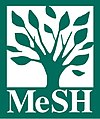Operation, management and performance of Botika ng Barangay in RCAMPS Interlocal Health Zone: A study on sustainability

Page views
1,882Date
2015Author
Thesis Adviser
Defense Panel Chair
Share
Metadata
Show full item record
Abstract
This study was conducted to determine the factors that influence the management and performance of Botika ng Barangay (BnBs) in the municipalities of the RCAMPS ILHZ, both from the operator’s and client’s perspectives. This is a descriptive cross sectional study of BnBs in RCAMPS Interlocal Health Zone, Iloilo.
The respondents of this study included 38 BnB operators of the functional BnBs in the RCAMPS ILHZ, and three (3) Rural Health Unit (RHU) In-Charge of the management aspects. For the community/clients’ perspective, client-respondents were identified and selected through non-probability multi-stage purposive sampling.
Data were collected through document review at the CHD-Western Visayas and RHUs, questionnaire administration and in-depth interview using a researcher-made questionnaire. Set I was used to collect information about the BnB management. Set II was used for the BnB clients.
Findings on the Management Aspect. The Financial Investment for the BnBs was as prescribed by the DOH which was in the form of medicines in the amount as prescribed at the time of release. The single personnel managing the BnBs was needed. The infrastructure was not as prescribed by the DOH in as much as the medicines were sold in established buildings in the barangay or even brought home by the operators. The Training input was as recommended by DOH although the quality of trainings was wanting. The Supervisory input was inadequate in frequency.
Adequacy of stocks was ensured through inventory. Problems with expiring medicines were evident with the initial stocks. Personnel hiring was done by the Barangay Council with the influence, although not directly, of the Barangay Captain. No new infrastructure was built specifically for the BnB as existing structures were utilized in most areas. The training was conducted as recommended by DOH through the CHD, but many operator received training from RHU personnel. Supervisory Consultation was mainly through the RHU In charge while Pharmacist Inputs was significantly low.
The profit earned by the BnBs was not as expected by the DOH, although this does not seem to bother the operators who were more concerned with availability of medications. There was only one number of personnel in most BnBs was one (1) in most. The structure were the BnB is housed as also used for a different purpose. The number of trainings was as prescribed by DOH. The manner of supervision was perceived to be helpful at most although the quality was wanting for most.
Sustainability based on income was not evident although the operators continued to express the intention to continue with the BnB to ensure availability of affordable medicines in the locality.
Client Aspect. The BnB clients were aware of the BnB in their locality irrespective of sex, educational attainment, position of responsibility at home, family size and average monthly family income.
The clients also have good attitude towards the BnB services. This was also evident to both sexes irrespective of educational attainment, position of responsibility at home and family size. Those families with an average family income of P5, 000.00 and below tended to have a better attitude towards the services offered by the BnB than those with higher income.
The clients who tended to patronize the BnB more were males, attended elementary school, belong to small families and were from the lower income group. The clients’ position of responsibility at home did not affect their patronage of BnB services.
The clients who were more satisfied with the services of the BnB were males, sons and daughters and were from the lower income group. The clients’ educational attainment and family size did not affect their satisfaction level of BnB services accessed.
The clients who definitely intend to access the services of the BnB were most likely to be males and belong to the lower income group. The clients’ educational attainment, position of responsibility at home and family size did not affect their intention to access BnB services.
Conclusion:
The Management factors that affect the operation of the BnB include financial investment, personnel, infrastructure, training and supervision. The Client factors include awareness, attitude, patronage, satisfaction and intention. The interplay of these factors affects the operation and management of the BnB, significantly influencing sustainability.
Description
Abstract only
Suggested Citation
Rufon, A. S. , Jr. (2015). Operation, management and performance of Botika ng Barangay in RCAMPS Interlocal Health Zone: A study on sustainability (Unpublished Master's dissertation). Central Philippine University, Jaro, Iloilo City.
Type
DissertationSubject(s)
Keywords
Department
School of Graduate StudiesDegree
Doctor of ManagementShelf Location
GSL Theses 658.0072 R839
Physical Description
xii, 113 leaves
Collections
- Doctor of Management [20]
The following license files are associated with this item:




